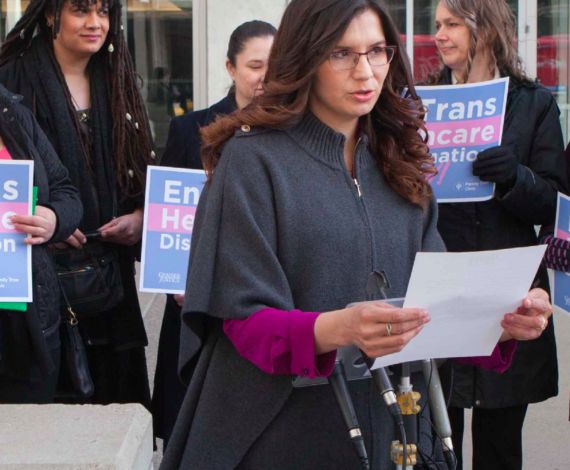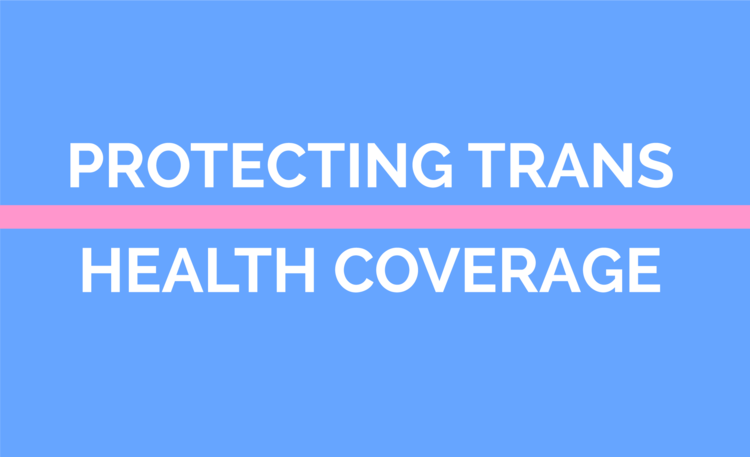
Continuing the Fight to Protect Trans Health Coverate
Brittany Tovar worked as a nurse for Essentia Health. In 2014, her transgender son, Reid Olson, was diagnosed with gender dysphoria, a condition where a person experiences distress because their gender identity doesn’t match their sex assigned to them by others at birth. When Brittany sought treatment for Reid’s diagnosis, Essentia and her insurer, HealthPartners, refused to pay, saying that their health care plan excluded gender confirmation surgery or anything related, like hormone therapy. Because of this refusal, Reid wasn’t able to get the treatment he needed during puberty.

In 2016, Gender Justice helped Brittany and Reid bring a lawsuit against Essentia and HealthPartners. After a two-year court battle, Essentia is now arguing that civil rights laws don’t protect transgender people. Why? Because the Trump administration is changing the rules.
Gender Justice successfully argued in a Minnesota federal court that Section 1557 of the Affordable Care Act prohibits sex, race, age, or disability discrimination by health programs. In that historic ruling, the court noted that the U.S. Supreme Court had “eviscerated” the narrow view of the term “sex” back in 1989, in a landmark Title VII case, Price Waterhouse v. Hopkins, and that courts increasingly interpret the term “sex” in Title VII to include all “individuals who are perceived as not conforming to gender stereotypes and expectations,” including transgender and gender-nonconforming individuals. Trump may have appointed an anti-LGBTQ zealot to head the civil rights division of the Department of Health and Human Services—but our court system doesn’t stop protecting people just because he says so.
On February 7th, Gender Justice filed a brief challenging Essentia’s misguided view of who has the right to health care in this country. Thank you for standing with us as we continue to fight in the courts to protect hard-won advances in LGBTQ civil rights.
How We Make Change
What We Fight For
Where Barriers Occur
Related Work
